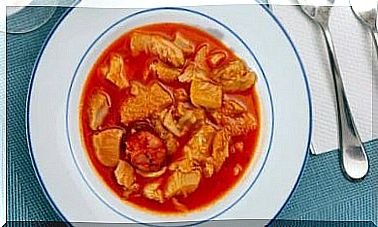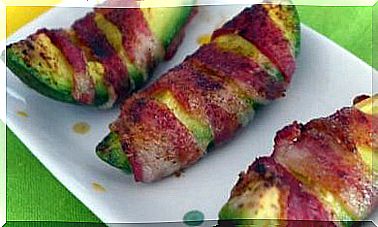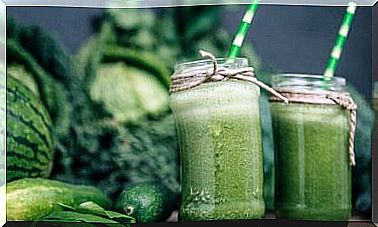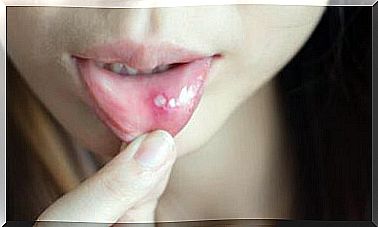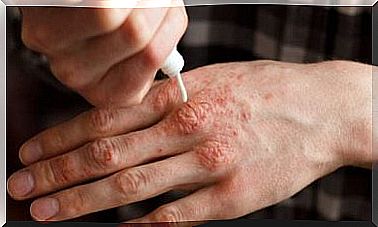3 Natural Remedies For Runner’s Knee

Do you need natural remedies for the discomfort caused by the runner’s knee?
The term “runner’s knee” is the popular name for painful patellofemoral syndrome. The pain caused by it is the consequence of an injury, muscle weakness, overload or trauma. The name “runner’s knee” is based on the fact that this problem tends to occur in athletes who run and jump a lot.
The most common symptom of a runner’s knee is a slight pain in the front of the knee. It intensifies during running, when the patient climbs or descends the stairs and during periods of long inactivity. It can also worsen at the knee or when the patient sits on his back.
Although the discomfort felt is generally minor, it is best to consult a doctor or physiotherapist to receive a correct diagnosis. The specialist will then determine if it is appropriate to enroll in a rehabilitation program, take medication, or undergo surgery.
The good news is that there are some natural remedies for runner’s knee that can temporarily relieve pain. Keep in mind, however, that these are not first-line treatments and should only be used in mild cases. Read on to find out what it’s all about!
The best natural remedies for the runner’s knee
According to the Open Access Journal of Sports Medicine , each case of the runner’s knee is unique. The causes of this problem are various. We advise you to consult a doctor before trying any natural remedy.
The source of pain can be determined by physical examination, x-rays, computed tomography or nuclear magnetic resonance imaging. As soon as the cause is known, the doctor may recommend rest, physiotherapy sessions, analgesics, wearing splints or even, in extreme cases, surgery.
Now that all these issues have been clarified, it’s time to find out what natural remedies for the runner’s knee are available. Like any other type of treatment, you should combine them with rest and avoid activities that require excessive effort.
Ice bags
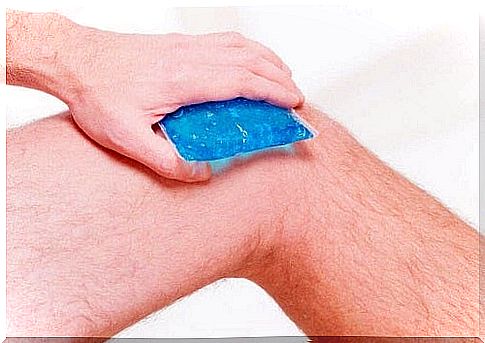
One of the first steps you can take to relieve the pain caused by a runner’s knee is to reduce inflammation. Applying cold compresses can be very useful for this purpose. You can wrap ice cubes in a cloth or apply an ice pack.
An article published in Physical Therapy in Sport suggests that cold therapy has a positive effect in reducing knee inflammation. But experts need more evidence to see how useful this therapy is in treating a runner’s knee.
Therefore, this should not be the only treatment you resort to. Be careful because, according to researchers, cold therapy can cause problems if not applied correctly. For example, if you keep ice on the affected area for too long, you risk burning your skin or damaging the nerve endings.
Every time you want to apply ice, wrap it in a cloth or put it in a special bag. At the same time, he didn’t let her act for long. If you experience a negative reaction, stop treatment immediately.
Ginger root
Ginger is used in traditional medicine to treat many health problems. In fact, the medical literature has confirmed many of its properties.
An article published in The Journal of Strength & Conditioning Research suggests that the anti-inflammatory and analgesic properties of ginger are useful in relieving pain experienced by athletes. The effects of this root are similar to those of nonsteroidal anti-inflammatory drugs, without causing side effects.
You can access these properties with the help of natural extracts. Apply topical ointments or drink ginger tea. All you have to do is add a tablespoon of crushed ginger to a cup of hot water.
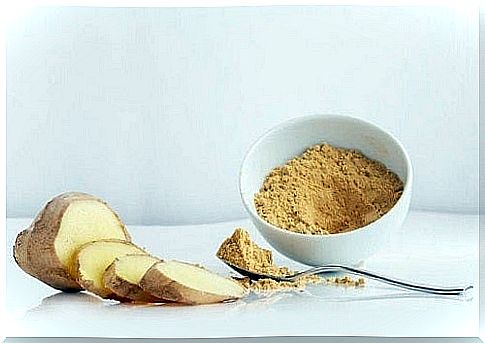
Turmeric
Spices such as turmeric can also be helpful in treating a runner’s knee. Although not a first-line treatment, taking turmeric in the form of supplements can help you fight pain and inflammation.
According to a study published in the European Journal of Applied Psychology , curcumin, the main active compound in turmeric, reduces the presence of inflammatory chemicals called cytokines. Due to this property, turmeric could relieve muscle pain that occurs after intense training.
The medical journal Drug Design, Development and Therapy reports that, having an anti-inflammatory action, curcumin has the ability to relieve joint pain. Thus, it can improve the functioning of the body and the quality of life.
You can add small amounts of turmeric to soups, smoothies and other similar recipes. In addition, this ingredient is also available in capsule form. Before taking turmeric, we advise you to consult a doctor, especially if you have health problems or are pregnant. Although considered safe, turmeric is not recommended for everyone.
What other measures can you take to combat a runner’s knee?
In addition to the remedies presented in this article, there are various other ways to treat a runner’s knee. Eat a balanced diet and limit your intake of inflammatory foods, such as cold cuts or red meat. Also, stay hydrated and avoid harmful habits such as smoking and alcohol consumption.
Although initially it is good to rest, later you will have to start getting involved in moderate physical activities. In order not to get injured, consult a physiotherapist and follow his recommendations. If you have any problems, go to the doctor as soon as possible.
